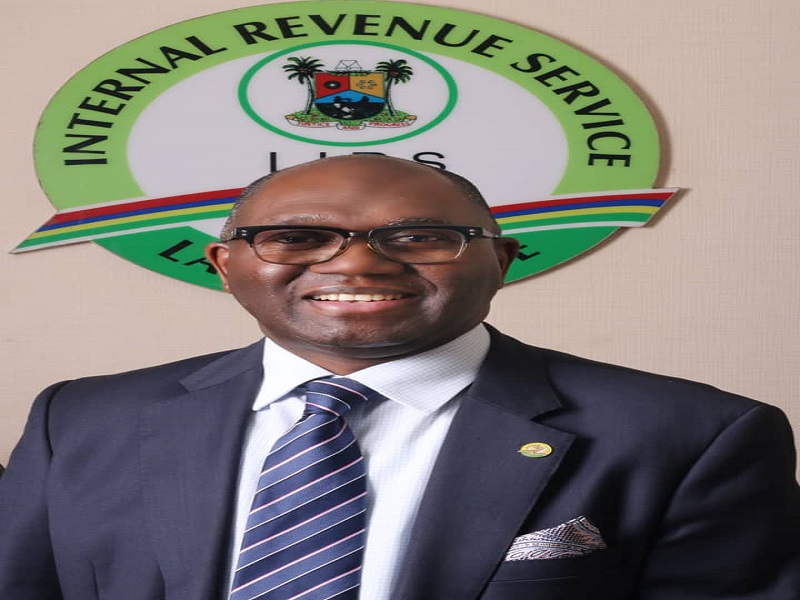News
Firm Warns Against AI Password Generation @ World Password Day

Most online services and apps require the user to create a password. Chances are many of those passwords are not being used daily and due to this overabundance, there’s a high probability that many of the passwords are being reused.

Poor password management is compounded by a reliance on common combinations of names, dictionary words and numerals. Not only are these passwords relatively easy to decipher, but if a cybercriminal gains access to a password on one site, that could result in access to a plethora of other sites.
People are urged to create unique, random passwords to counter the vulnerability posed by using the same password multiple times. However, password creation and management can be an arduous task.
To tackle the burden of password creation and management, people might be tempted to use large language models (LLMs) like ChatGPT, Llama or DeepSeek to generate their passwords.
The appeal is clear. Rather than struggling to come up with a strong password, users can simply ask AI, “Generate a secure password” and get an instant result.
AI produces strings that look random, which helps avoid the human tendency to create predictable, dictionary-based passwords. But appearances can be deceptive, AI-generated passwords may not be as secure as they appear.
Alexey Antonov, Data Science Team Lead at Kaspersky, tested this by generating 1,000 passwords using some of the more prominent and trusted LLMs including ChatGPT (from OpenAI), Llama (model from Meta group), DeepSeek (newcomer from China).
“All of the models are aware that a good password consists of at least 12 characters, including uppercase and lowercase letters, numbers and symbols. They report this when generating passwords,” says Antonov.
“In practice, though, the algorithms often neglected to insert a special character or digits into the password: 26% of passwords for ChatGPT, 32% for Llama and 29% for DeepSeek. While DeepSeek and Llama sometimes generated passwords shorter than 12 characters.”
In 2024, Alexey Antonov developed a machine learning algorithm to test password strength and found that almost 60% of passwords can be cracked in under an hour using modern GPUs or cloud-based cracking tools.
When applied to AI-generated passwords, the results were alarming, they were far less secure than they appeared: 88% of DeepSeek and 87% of Llama generated passwords were not strong enough to withstand attack from sophisticated cyber criminals. While ChatGPT did a little better with 33% of passwords not strong enough to pass the Kaspersky test.
“The problem is LLMs don’t create true randomness. Instead, they mimic patterns from existing data, making their outputs predictable to attackers who understand how these models work,” notes Antonov.
News
Stanley Amandi, Nollywood Actor Arrested over Alleged Coup Plot against Tinubu

Stanley Amandi, veteran Nollywood actor and filmmaker, has been arrested by the Nigerian military over his alleged role in a foiled coup plot to overthrow President Bola Tinubu’s government, according to an exclusive report by Premium Times.

Stanley Amandi, Nollywood Actor
The filmmaker, also a former chairman of the Actors Guild of Nigeria (AGN) Enugu State chapter, was reportedly detained in September 2025 alongside several military officers accused of planning a violent overthrow, including potential assassinations of top officials, according to the newspaper’s sources.
Reports indicated that the coup plotters planned to wholesale assassination of top government officials including President Tinubu, Vice President Kashim Shettima, Senate President Godswill Akpabio, and Speaker of the House of Representatives Tajudeen Abbas, among others.
On Monday, the Defence Headquarters confirmed the plan to illegally oust the Tinubu administration, saying the indicted officers will be arraigned before military judicial panels.
In its statement, the Defence Headquarters said the investigation has been completed and forwarded to “appropriate superior authority in line with extant regulations.”
According to the military, the investigation was “comprehensive” and conducted in line with established procedures, examining “all circumstances surrounding the conduct of the affected personnel.”
The military disclosed that the findings identified “a number of the officers with allegations of plotting to overthrow the government,” describing such conduct as “inconsistent with the ethics, values and professional standards required of members of the Armed Forces of Nigeria.”
Mr Amandi has featured in many Nollywood movies and is known for his work as an actor, production manager and director.
His notable works include “The Album,” where he served as director; “Tiger King,” where he also served as director and produced in 2008; “Cornerstone,” produced in 2019; and “Once Upon a Dream,” in which he appeared as an actor in 2024.
Mr Amandi’s last Instagram post was on 19 September 2025, shortly before his arrest.
News
Firms Commit to Boost African Robotics Market

AfricAI and Micropolis Robotics have signed a multi-year exclusive distribution and deployment agreement, which marks one of the continent’s most significant robotics market entries.

Micropolis AI Robotics is a United Arab Emirates-based robotics manufacturer operating in autonomous systems, while AfricAI is a company building practical, revenue-driven artificial intelligence (AI) systems for African businesses, governments, and global partners operating in emerging markets.
According to the agreement, Micropolis Robotics named AfricAI as its exclusive continental partner, prohibiting direct sales, alternative distributors, and third-party agents from operating in the territory.
The partnership establishes AfricAI as the primary execution, localisation, and go-to-market platform for intelligent robotics in Africa’s industrial, security, logistics, and infrastructure sectors.
AfricAI said this exclusive mandate positions the company as the gateway for advanced autonomous systems entering African markets, ensuring regulatory compliance, local capacity building, and sovereign control over deployment frameworks.
The partnership, according to the two parties, moves beyond software- based AI into the realm of physical AI — intelligent machines capable of operating in complex, real-world African environments.
“This is not a collaboration, it is a market-shaping mandate,” said Fareed Aljawhari, CEO of Micropolis Robotics. “AfricAI now represents the exclusive gateway through which Micropolis technologies enter Africa. Their sovereign AI vision, operational reach, and regulatory fluency make them the only partner capable of executing at a continental scale.
Furthermore, the agreement enables AfricAI to integrate Micropolis’ autonomous robotics systems with AfricAI’s sovereign AI stack, resulting in AI-powered security and surveillance platforms, robotics-enabled logistics and port operations, industrial automation, smart infrastructure, and municipal robotics tailored to African operating conditions.
Initial deployments will commence in security, smart infrastructure, and logistics, with phased expansion across multiple African states as part of AfricAI’s broader continental AI, data, and intelligent infrastructure strategy.
The agreement also includes long-term performance-linked expansion rights, automatic renewals, and a defined localisation framework to support robotics deployment, workforce training, and skills transfer across Africa.
Prince Malik Ado-Ibrahim, executive chairman of AfricAI, said: “Africa does not need imported automation — it needs sovereign, context-aware intelligent systems. This exclusive mandate allows AfricAI to industrialise robotics deployment at scale while retaining control, compliance, and value creation on the continent.”
News
Subair: LIRS Won’t Raid Accounts – Unless You’ve Lost Every Court Battle

Lagos State Internal Revenue Service Executive Chairman Ayodele Subair Tuesday demolished online panic over alleged bank account raids, insisting the agency’s “Power of Substitution” targets only hardcore tax dodgers who have exhausted every appeal from tribunals to the Supreme Court over half a decade of disputes.

Ayodele Subair
Subair, speaking on Arise TV, shredded viral fears that LIRS would swoop on residents’ savings without warning, clarifying the mechanism under Section 60 of the Nigeria Tax Administration Act 2025 kicks in solely after assessments spark objections, reconciliations, demand notices, and a gruelling courtroom odyssey through High Court, Court of Appeal, and apex rulings.
The LIRS weekend notice had ignited fury by announcing enforcement via third parties – banks, employers, tenants, debtors – to claw back unpaid Personal Income Tax, Capital Gains Tax, Stamp Duties, and Withholding Tax from chronic defaulters holding funds or owing money to them, whether due now or accruing later.
Subair likened the process to a “long timeframe, not less than five years,” where recalcitrant bigwigs who stonewall every step become fair game, with LIRS directing agents like customers or partners to divert payments straight to the taxman in lawful settlement.
Far from arbitrary grabs, the chairman stressed it’s a final resort for “entirely recalcitrant” holdouts who ignore Notice of Refusal to Amend (NORA) and every olive branch, ensuring Lagos coffers snag rightful revenue fuelling the state’s bulging budget without shotgun raids on compliant payers.
As social media buzzes with defiance – “They can’t touch my account!” – Subair’s blueprint spotlights Nigeria’s tax evasion scourge starving subnationals of trillions yearly, with Lagos alone chasing billions in arrears amid federal revenue wars and economic headwinds squeezing the commercial capital’s 25 million souls.
Industry voices nod to the legality but plead for digital dashboards tracking disputes transparently, warning overzealous recovery could spook investors in Africa’s fintech and startup mecca already reeling from naira nosedives and grid glitches.
With LIRS poised to unleash the hammer on vetted violators, Subair’s clarion call aims to separate myth from muscle, bolstering Lagos’ IGR juggernaut that hit N815 billion last year while daring defaulters to test the full judicial gauntlet before crying foul.

 Telecom2 days ago
Telecom2 days agoPolice Bust ₦7.7bn Telecom Hack Gang, Seize 400 Laptops in Massive Fraud Swoop

 E-Financial3 days ago
E-Financial3 days agoPayPal Goes Live in Nigeria through Paga

 Broadcasting3 days ago
Broadcasting3 days agoNITDA, NBC Explore Strategic Collaboration on Digital Transformation, Media Regulation

 General News2 days ago
General News2 days agoNaira Smashes Through ₦1,400 Barrier in Official FX Rally

 General News2 days ago
General News2 days agoNCC Slaps ₦250,000 Fee on Trial Licences to Spur Telecom Innovation

 General News3 days ago
General News3 days agoFacebook Powers Connection, Creativity at African Creators Summit 2026

 E-Business3 days ago
E-Business3 days agoGold Hits Record $5,110/Ounce Amid Trump Tariff Threats, Geopolitical Fears

 Telecom3 days ago
Telecom3 days agoTikTok, Instagram Blamed in US Youth Suicide Lawsuit















